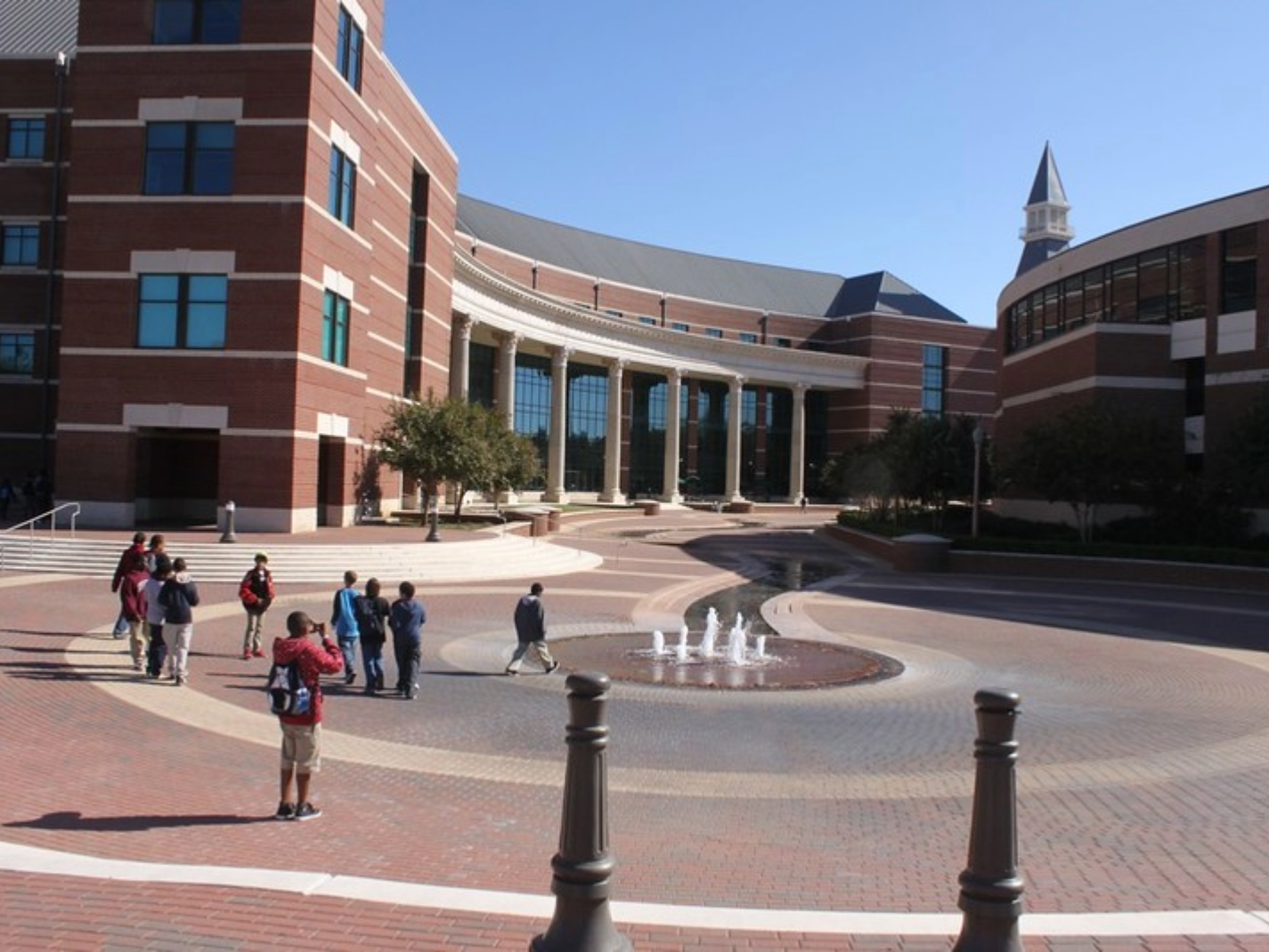
Author’s Note: This excerpt is from my weekly “Top of Mind” email, sent to subscribers every Thursday. For more content like this and to receive the full newsletter each week, sign up on Minding the Campus’s homepage. Simply go to the right side of the page, look for “SIGN UP FOR OUR WEEKLY NEWSLETTER, ‘TOP OF MIND,’” and enter your name and email.
There is no shortage of ideological absurdity in higher education today, but few decisions are as galling as Baylor University’s resolve to build a memorial to once-enslaved people on its campus.
As reported by Christianity Today, Baylor is erecting this memorial on its Waco, Texas, campus to honor enslaved laborers who had helped to construct Baylor’s original and former campus location in Independence, Texas. The memorial project is set for completion by the close of 2025.
At a time when universities nationwide are facing pushback against “diversity, equity, and inclusion” (DEI) initiatives, Baylor is not just holding its ground—it is doubling down on corrosive racial grievance politics.
One might expect a private Christian university—the oldest in Texas and the world’s largest Baptist institution—to pridefully uphold, well, Christian principles. Instead, Baylor, like many so-called Christian schools, has embraced the insidious DEI agenda. According to Christianity Today, this means organizing lectures on racism, diversifying its staff, and rethinking how racial minorities are represented in promotional materials. Apparently, the great DEI-in-the-sky further obligates Baylor to institutionalize a layering of perpetual guilt rather than promoting a Christian vision of reconciliation.
[RELATED: Boomer Professors Are Not Based]
Malcolm Foley, Baylor’s Special Advisor to the President for Equity and Campus Engagement, justified the project by saying, “We have a unique responsibility to not only repent of [slavery] but repair the harm actually caused by it.” The university has also invoked biblical references to freedom and redemption, pointing to passages like Exodus 20:2, which recounts God’s liberation of the Israelites, and John 8:36, which declares that believers are made free through Christ.
But Foley’s interpretation is deeply flawed.
Baylor’s approach resembles scrupulosity—an excessively unhealthful preoccupation with sin, one that disregards God’s mercy. Christ did not tell the woman caught in adultery, “Dwell forever on your sin.” He said, “Go and sin no more” (John 8:11). The Christian Church does not demand that a penitent wallow in guilt but, rather, that he or she confess, receive absolution, and move forward in grace. Yet Baylor is institutionalizing an endless cycle of self-condemnation, embedding racial guilt into its identity rather than embracing Christian forgiveness and magnanimity.
Beyond theological error, Baylor’s actions defy both good-faith reasoning and justice.
No present-day Baylor student or faculty member had any involvement in the injustices of slavery. Memorials to slavery do not heal divisions; they encourage a culture of perpetual grievance while fostering resentment among those who are expected to atone for sins they did not commit. Instead of promoting unity in Christ, Baylor is feeding an industry that already gluttonously thrives on a diet of perpetual recrimination.
To this end, Baylor is not merely tolerating DEI—it is reinterpreting Christianity through a DEI-manufactured racial lens, replacing repentance with self-flagellation and grace with grievance. Baylor’s stance is flatly antithetical to Christian precepts. It is an ideological distortion masquerading as virtue.
Further, the school’s administrators are deliberately disregarding vociferous public opposition. Foley himself admitted that his work is designed to go “beyond government compliance.” This suggests that Baylor is not merely yielding to external pressure but actively choosing to embed DEI ideology into its institutional identity.
A close friend in Texas remarked that the memorial “seems unnecessary and ill-advised, especially given the present anti-DEI measures being instituted by the Trump administration.” Foley, meanwhile, presents himself as a moderate voice, insisting that DEI should not impose a uniform ideology. Yet, in the same breath, as my friend pointed out, Foley claims that “everyone” must be on board with the university’s efforts “to actually go forward.” This is “gaslighting,” my friend said. Foley “knows exactly what DEI promotes and is simply trying to craft an argument to reframe the issue and keep his job.”
Anyone familiar with higher education’s fall from grace, if you will, is unsurprised by Baylor’s actions.
Minding the Campus contributor, Rob Jenkins, has long cautioned readers that many Christian universities are “Christian” in name only, as mounting pressure to compromise their core beliefs in the name of “progress” or “inclusivity” compels them to abandon their faith. “The higher-education landscape is littered with private universities that used to be religiously affiliated but are now as secular as any land-grant,” Jenkins wrote in March 2023.
Jenkins rightly observed that as societal values shift toward secularism and social justice, these institutions face increasing legal and cultural pressures, forcing them to choose between remaining faithful to their founding principles or conforming to progressive ideologies. Some, like Harvard and Yale, abandoned their theological roots long ago. For many others, the temptation to compromise has been fortified by financial pressures and incentives. Under the Biden administration, federal funding—often mercilessly tied to policies of “equity” and “inclusion”—vulnerably positioned institutions. When these funds were threatened, schools frequently caved, aligning themselves with secular expectations linked to issues like LGBTQ+ rights and racial equity. Such succumbence undermined their ability to otherwise faithfully uphold Christian doctrine on sexuality, marriage, and identity.
[RELATED: Get Off Facebook: America Was Not Founded on Separation Between Church and State]
But universities can no longer seek solace in this excuse, since, in only a span of a few weeks, Donald Trump’s administration has advanced orders to once-and-for-all dismantle DEI.
Baylor’s decision is not simply countercultural; public sentiment is unequivocal—most Americans reject DEI. Nonetheless, its plan to erect a let’s-never-forget-slavery structure on its 1,000-acre Waco campus epitomizes the unconditional surrender of universities to ideological zealots. Leftists need not control the White House, nor must there be politically charged financial incentives—Baylor’s initiative to build a prominent and permanent slavery memorial on its pristine campus is undertaken voluntarily.
Baylor’s decision contradicts the Christian identity it claims to uphold. Baylor has embraced the racialized politics of the modern, progressive academy, harnessing Christianity to serve as a tool for ideological activism. Baylor’s leaders claim to promote reconciliation, but, in reality, they are entrenching division.
Baylor can no longer tout itself as a devout Christian institution honoring its faith; it is merely a university appropriating the language of faith to justify a fundamentally secular agenda.
What visitors to Baylor University will encounter is not so much a memorial to slavery but, rather, a slave to DEI.
Follow Jared Gould on X.
Image: Buildings at Baylor University, Waco, TX by Mark Spangler on Flickr

All of this about a memorial to slaves who helped build the university?
You are succeeding in the considerable feat of rethinking about DEI, maybe thinking it may not be all bad after all.
By the way, the current faculty and students at Baylor likely weren’t involved in slavery. But I guarantee that many of them have been involved with racially prejudicial attitudes and actions.
I>”But I guarantee that many of them have been involved with racially prejudicial attitudes and actions.”
REALLY?!?
May I inquire as to the basis of your statement?
Do you have statistically-valid non-biased research that supports the validity of your statement, or are you merely expressing your own prejudice and bigotry?
Personally, I do not consider Baylor to *be* a Christian university because of what has come out about its athletic department over the past two decades, including murder & drug dealing involving the Basketball program circa 2003 and rape involving the Football program a decade later.
Baylor reminds me of Mathew 6:2:
“Therefore when thou doest thine alms, do not sound a trumpet before thee, as the hypocrites do in the synagogues and in the streets, that they may have glory of men. Verily I say unto you, They have their reward.”
That said, do you have any basis for that statement?